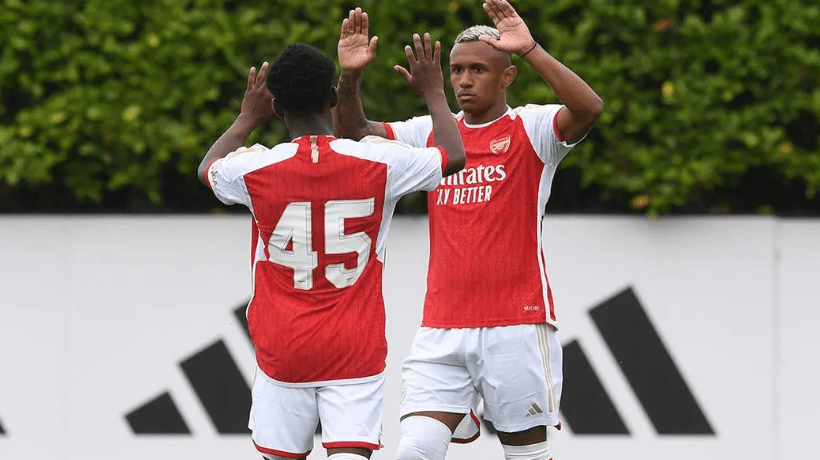Arsenal have managed to secure a huge sell-on clause in Marquinhos’ contract with Fluminense, should the winger make his loan move permanent.

Fabrizio Romano reports that Arsenal have negotiated a massive 50% sell-on clause into Marquinhos’ deal with new club Fluminense, should the Brazilian club choose to buy the Gunners loanee.
As it stands, Marquinhos is only temporarily a Fluminense player, but the club have an option to buy at the end of his current deal. Should they take up that option, Marquinhos’ sell-on clause would then come into effect.
What that means is that if Fluminense then decided to sell Marquinhos in the future, they’d hand over 50% of the proceeds to Arsenal.

Arsenal confirmed Marquinhos’ move to Fluminense earlier this month, with the player joining Fluminense on a season-long loan.
The Brazilian league operates on a calendar-year basis so Marquinhos has signed on loan until January 2025, not summer 2024.
Reports suggest his deal could be made permanent automatically if he triggers certain clauses in his loan contract, likely relating to performance or appearances.
On that note, Marquinhos has already made his debut for his new club, coming off the bench against Madureira last week.

“I am really happy,” Marquinhos said after sigining.
“It’s a great opportunity in my career to be able to represent Fluminense’s team. I’m very happy and I hope we write a beautiful story, with titles and many victories. Fluminense is a club that aims for great things and that’s what made me come here.
“The objective for the season is to win as many titles as possible. If we manage to win the Libertadores for the second time, it would be wonderful.”
Understanding sell-on clauses in Premier League football
A sell-on clause is a common contractual agreement inserted into a player’s transfer agreement between two clubs. Its basic function is to ensure that the selling club receives a portion of any future transfer fee if the player moves on to another team.
How it works:
- Negotiation: The selling club and buying club negotiate a percentage figure for the sell-on clause during the initial transfer. This percentage usually ranges from 5% to 20% of the future transfer fee.
- Triggered clause: If the player is then sold to a third club, the previous selling club becomes entitled to the agreed percentage of the new transfer fee.
- Example: If Club A sells a player to Club B for £20 million with a 10% sell-on clause, and Club B later sells that same player to Club C for £30 million, Club A would receive £3 million (10% of £30 million).
Why use sell-on clauses?
- Smaller clubs: Sell-on clauses offer protection and potential financial benefits for smaller clubs selling promising young players to bigger clubs. They guarantee a future share in a player’s success if they develop and are sold for a significant profit.
- Financial safety: Sell-on clauses can provide some financial security to selling clubs, allowing them to recoup more of their initial investment and reinvest those funds back into the club.
- Negotiation leverage: Sell-on clauses can sometimes serve as negotiation leverage. A selling club might agree to a lower initial transfer fee in exchange for a higher sell-on percentage.
Important note: While sell-on clauses are common, they are becoming less prevalent due to recent FIFA regulations aimed at curbing third-party ownership (TPO) of players.

